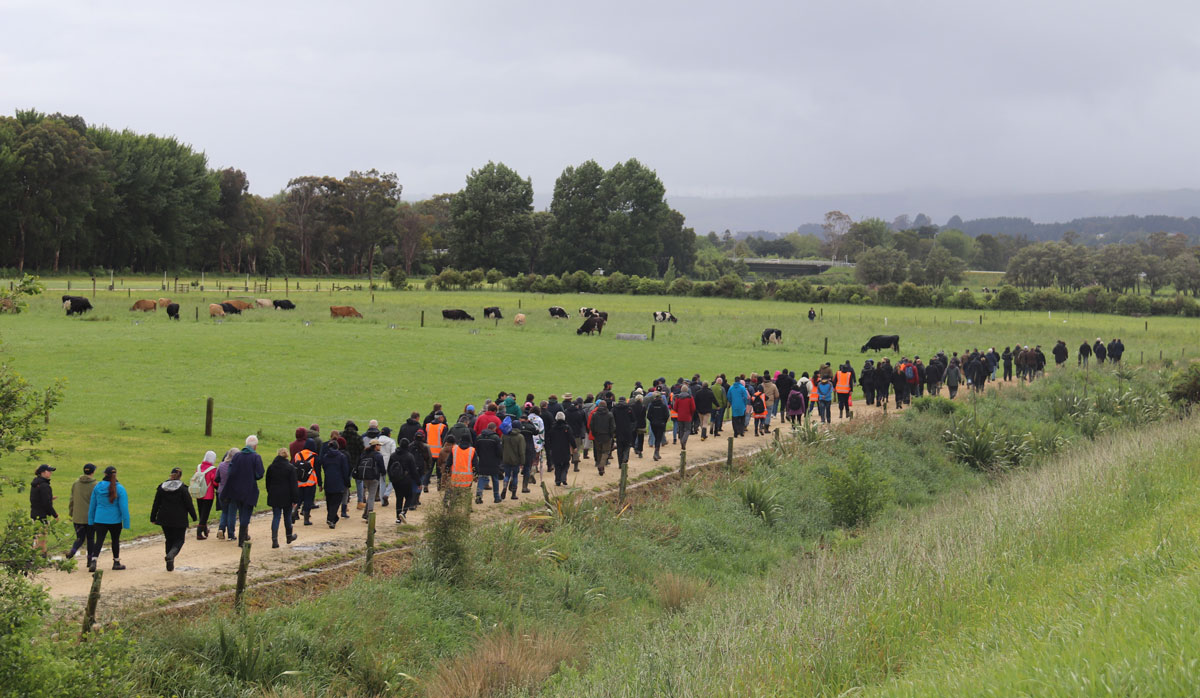NZ Catchment Groups Thrive with ‘Source to Sea’ Approach
The most successful catchment groups in NZ are those that have 'a source to sea' approach.
More than 200 people turned out on Thursday, November 21 to see what progress has been made on one of NZ's biggest and most comprehensive agriculture research programmes on regenerative agriculture.
Whenua Haumanu is led by Massey University and funded by the Ministry for Primary Industries though the sustainable farming fund and is now in year three of a seven-year programme.
The purpose of Whenua Haumanu is to measure multiple aspects throughout the farm system, exploring how different pasture mixes and management practices impact on such things as soil biology, diversity and structure. It is also looking at pasture growth, quality and persistence, nutrient leaching, methane and nitrous oxide emissions, animal production, health and welfare and the quality of milk, meat and wool products.
As part of this they are trialling contemporary and regenerative farming practices across both standard and diverse pastures on several research sites at Massey University.
Professor Danny Donaghy of Massey is heading the project and says he was delighted at the huge turnout for the field day which included scientists and students from Australia, South America and Asia. It also attracted huge interest from industry groups and rural professionals as well as farmers. It was a busy day for those attending the field day and buses were laid on to take people in the morning to the dairy farm where trials are taking place and after lunch to sheep plots.
Professor Donaghy says the constant question that he and his keep asking is ‘so what‘, meaning that they need to keep the focus of their research on gathering data that will ultimately benefit farmers.
 |
|---|
|
Visitors to the Whenua Haumanu open day walking to the dairy farm. |
New DairyNZ research will help farmers mitigate the impacts of heat stress on herds in high-risk regions of the country.
Budou are being picked now in Bridge Pā, the most intense and exciting time of the year for the Greencollar team – and the harvest of the finest eating grapes is weeks earlier than expected.
The Real Estate Institute of New Zealand (REINZ) has released its latest rural property report, providing a detailed view of New Zealand’s rural real estate market for the 12 months ending December 2025.
Rural retailer Farmlands has released it's latest round of half-year results, labeling it as evidence that its five-year strategy is delivering on financial performance and better value for members.
OPINION: "We are back to where we were a year ago," according to a leading banking analyst in the UK, referring to US president Donald Trump's latest imposition of a global 10% tariff on all exports into the US.
DairyNZ says the Government’s proposed Resource Management Act reform needs further work to ensure it delivers on its intent.

OPINION: A mate of yours truly reckons rural Manawatu families are the latest to suffer under what he calls the…
OPINION: If old Winston Peters thinks building trade relations with new nations, such as India, isn't a necessary investment in…